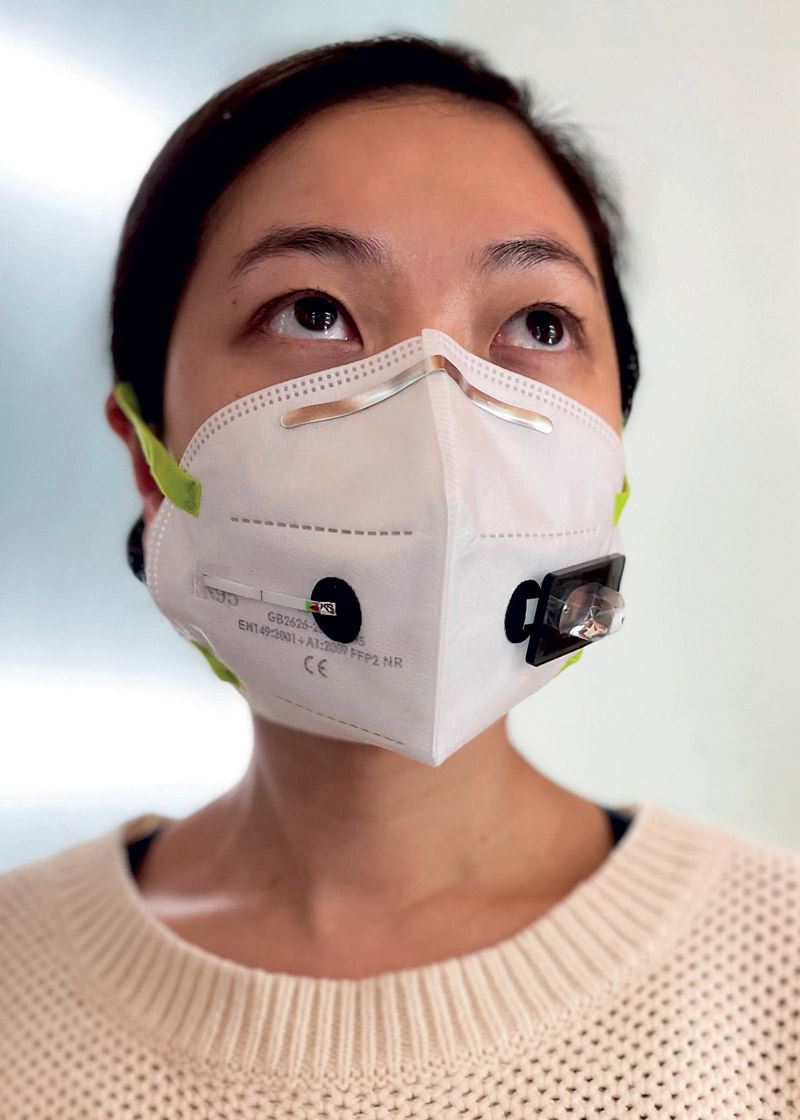 Wyss Institute / Harvard UniversityResearchers at Harvard University and the Massachusetts Institute of Technology (MIT), both in the USA, have developed a biosensor that detects the novel coronavirus and can be incorporated into masks and clothing. The sensor uses a series of dehydrated compounds that participate in chemical reactions characteristic of living organisms. When the material comes into contact with water, the reactions start and the virus’s genetic material is detected. The sensor can be altered to produce different types of signals, such as a change in color visible to the naked eye or emission of a light that can only be seen with specific equipment. One of the prototypes created by the group is a mask. It contains one biosensor inside to detect the virus in the air exhaled by the wearer and another on the outside to identify environmental exposure to the pathogen. The mask has a water reservoir that is activated at the time of the test. The result is available within 90 minutes (Nature Biotechnology, June 28). “This detector is as sensitive as the gold standard PCR tests, and as fast as antigen tests,” says Peter Nguyen, a researcher at Harvard.
Wyss Institute / Harvard UniversityResearchers at Harvard University and the Massachusetts Institute of Technology (MIT), both in the USA, have developed a biosensor that detects the novel coronavirus and can be incorporated into masks and clothing. The sensor uses a series of dehydrated compounds that participate in chemical reactions characteristic of living organisms. When the material comes into contact with water, the reactions start and the virus’s genetic material is detected. The sensor can be altered to produce different types of signals, such as a change in color visible to the naked eye or emission of a light that can only be seen with specific equipment. One of the prototypes created by the group is a mask. It contains one biosensor inside to detect the virus in the air exhaled by the wearer and another on the outside to identify environmental exposure to the pathogen. The mask has a water reservoir that is activated at the time of the test. The result is available within 90 minutes (Nature Biotechnology, June 28). “This detector is as sensitive as the gold standard PCR tests, and as fast as antigen tests,” says Peter Nguyen, a researcher at Harvard.